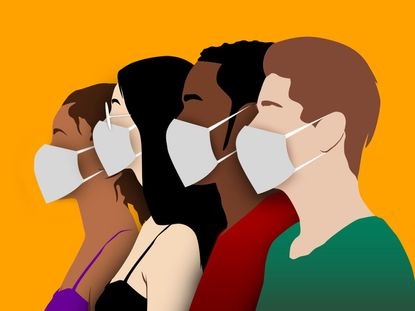Children are not immune to the COVID-19 disease, Dr Isabella Sagoe-Moses, the Acting Director of the Family Health Division of the Ghana Health Service (GHS), has stated.
She explained that in Ghana, the COVID-19 graphs showed that positive cases recorded included children below 15 years but was quick to add that the cases among children were fewer as compared to other age groups.
Dr Sagoe-Moses disclosed this to the Junior Graphic when responding to one of the myths about COVID-19 that children could not be infected with or die from the disease because they had a strong immune system.
She indicated that among all the age groups that had tested positive to the COVID-19, there were some who did not show any symptoms of the viral infection and so they could unknowingly pass it on to others.
She stated that the relatively low number of cases among children could be attributed to the fact that children were not going out often because of the closure of schools.
Additionally, they were not travelling like other age groups who had tested positive for the virus as a result of travel to affected countries or communities.
Dr Sagoe-Moses, therefore, advised children to continue to adhere to the safety protocols spelt out by the World Health Organisation, the Ministry of Health and the Ghana Health Service in order to stay safe from the virus.
“Even though you are home, you should continue to wash your hands as often as possible with soap under running water, use alcohol-based hand rub when there is no water, avoid hugging and shaking hands, keep at least one-metre distance between you and anybody else, look out for people who sneeze, cough and have high temperature and stay away from them or keep at least two-metre distance from them,” she noted.
She stressed the need to children to stay at home and not entertain visits from their friends.
Dr Sagoe-Moses added that children should also observe respiratory hygiene protocols by covering their nose and mouth with tissue when they sneeze or cough and afterwards discard the tissue into closed bins or they could also sneeze or cough into their elbows.
Apart from these, she said, children should stay healthy by taking a lot of fruits and vegetables to build their immune systems, avoid unhealthy foods such as sugary foods and sweets and also exercise regularly.
“It is also important for children to have good rest. This is the time the minimum of eight hours sleep per day should be strictly adhered to. Staying up late will not help your immune system,” she added.
COVID-19 child-related deaths in other countries
London
A 13-year-old boy who tested positive for coronavirus had died, a London hospital trust had said.
A BBC report said Ismail Mohamed Abdulwahab, from Brixton in South London, died in King’s College Hospital last month.
Ismail’s family said he had no apparent underlying health conditions and tested positive for COVID-19 a day after he was admitted to hospital.
BBC health correspondent Nick Triggle said it was rare for teenagers to become seriously ill after being infected with coronavirus.
“Just 0.3% of those who show face symptoms require hospital care and 0.006% die – in other words, two out of every 30,000 infections among this age group will not survive,” he said. – BBC
Belgium
In Belgium, a 12-year-old girl died last month after testing positive to COVID-19.
The 12-year-old girl’s death was announced during the daily news conference given by Belgium’s health service at the end of its regular update on casualty figures and hospitalisations. – euronews.
USA
The Illinois health department announced the first known infant death from COVID-19 in the state.
The Illinois governor, J.B. Pritzker, said an investigation was under way to determine the cause of death and whether the child, who was younger than one year, had other health issues. – The Guardian

